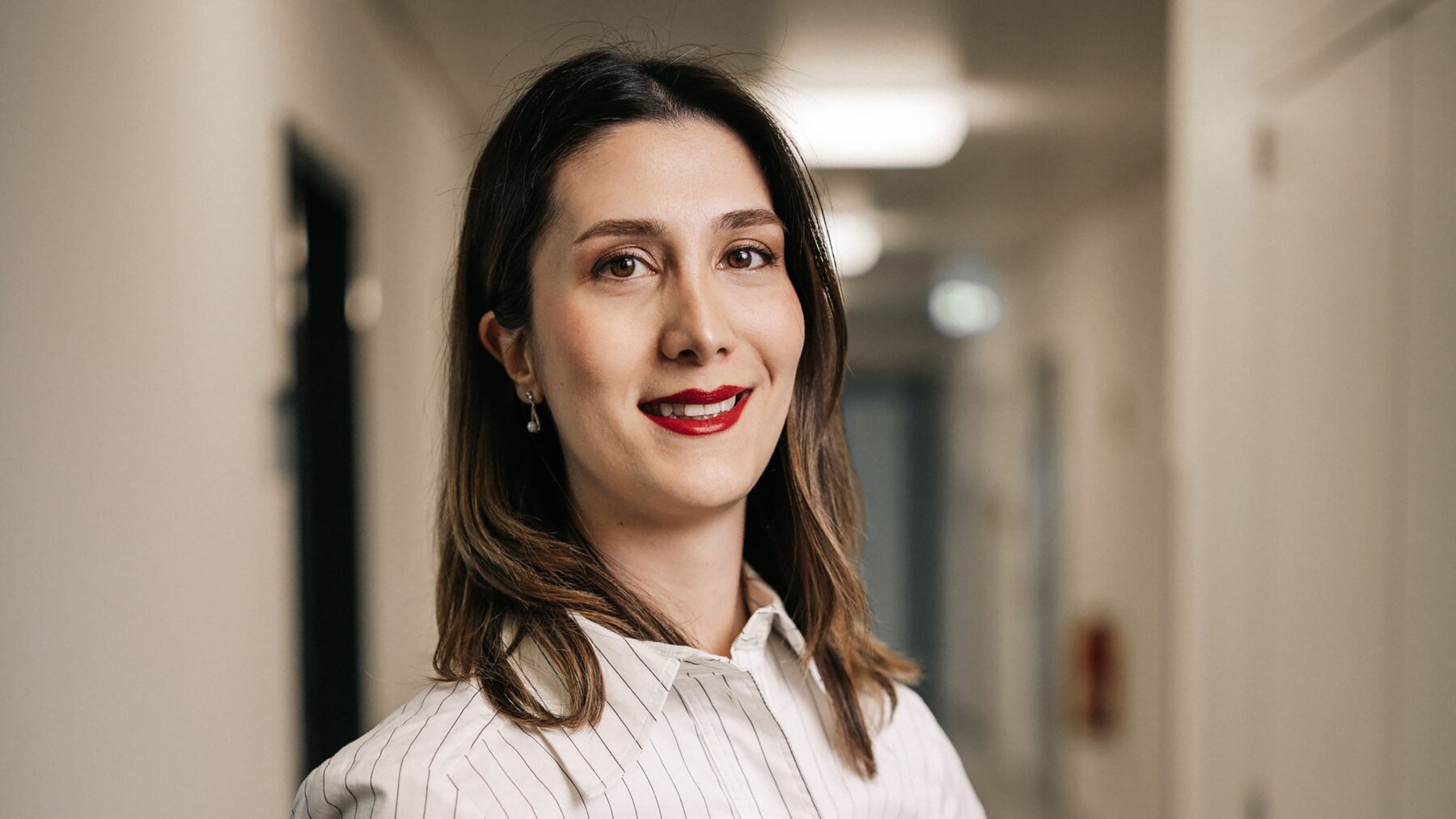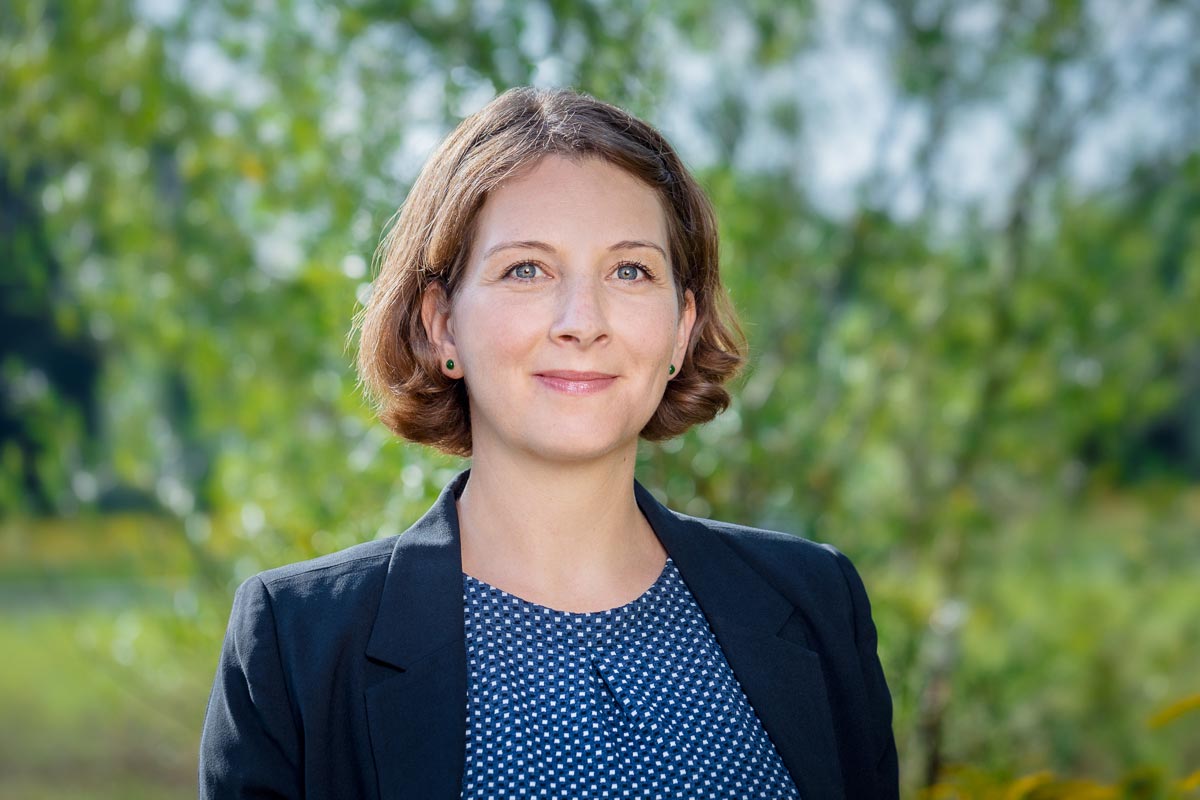
3 questions for CanChip founder Ghazaleh Madani – »For a rapid change towards personalized cancer treatments medicine, we need a push out of the comfort zone now«
Ghazaleh Madani is the founder of CanChip, a start-up engaged in the development of innovative tumour-on-a-chip technologies at the Potsdam Science Park. The chips produced in Potsdam-Golm serve as the basis for the development of novel cancer drugs and enable efficient and precise drug screening for personalised cancer therapies. In this interview, Ghazaleh Madani discusses the technology behind CanChip’s innovative idea, her profound connection to Potsdam and the Potsdam Science Park, and her hope for the future of cancer medicine.
»We need a change in cancer therapies now – and that’s possible«
Your company CanChip is developing tumour-on-a-chip models with the objective of revolutionizing cancer therapies. In what ways do these chips offer new hope for cancer patients?
Ghazaleh Madani: We are applying new methods like 3D-printing to produce microfluidic chips that are used in personalized cancer treatment. We can take cells from a patient’s tumour and allow them to grow on a chip in a natural environment by introducing the chemical media into the system that the cancer cells need to live. The resulting 3D cell culture resembles the microenvironment of the tumour cells in the body, which has proven important for treatment options. The cell culture on a chip lets us test which medicine is best for the patient. If it is chemotherapy, we can test which combination is most promising. We can also create multi-organ-chips with 3D structures of the patient’s liver and kidney to observe how the tested drugs are metabolized and what side effects they cause. This makes cancer treatment much more personalized, tolerable, and accurate.
Our microfluidic chips are also used in drug development. Currently, 92 percent of all developed drugs pass animal trials, but not human trials. Our chips can reduce animal testing significantly in the first two phases of clinical trials. This saves animals and makes the trials much cheaper and faster. It’s a win-win.
We are working with universities, hospitals, and pharmaceutical companies to develop a first batch of chips for specific cancer types. We are focusing on colorectal, bone, and pancreas cancer as well as metastasis, and Circulating Cancer Cells (and CTCs) in the blood. We see ourselves as a service provider that offers user-friendly, cost-effective chips with specific designs to revolutionize cancer treatment. I have lost two uncles due to cancer and my mom has luckily survived it. I do not accept that so many people have to suffer from cancer. We need a change in cancer therapies now – and it is possible.
You studied biochemistry and molecular biology at the University of Potsdam after finishing medical school in Iran. Why did you start CanChip in the Potsdam Science Park?
Ghazaleh Madani: I love Potsdam. The city is at the same time exciting and quiet, clean and welcoming. As an international I feel good here. When I finished my studies, I was not thinking for one second to go anywhere else in Germany to establish our company. The Potsdam Science Park helped us from the start. There was also support from the Investitionsbank des Landes Brandenburg and Wirtschaftsförderung Brandenburg.
In the Potsdam Science Park, we have established many scientific connections. For example, we are working with Professor Katja Hanack at the University of Potsdam on chips for monoclonal antibody production for cancer therapies. We are also in contact with the research institutes next door.
We expect to make more connections at Potsdam Science Park. The networking events the site management offers like Lunch & learn or After Work Beer are great for exchanging ideas and finding out who might be interested. As a new startup, we benefit a lot from the location. Colleagues can take German courses or health webinars or make use of the welcome service. This helps this people who don’t yet know how the German system works. It makes them feel more comfortable from the start.
Looking towards the future, how will cancer therapies change by 2040 with microfluidic chips?
Ghazaleh Madani: People will stop getting treatments that aren’t the best for them. In the future – hopefully sooner than 2040 – cancer therapies will be personalized and automated seamlessly – from seeding the cells on a chip and testing the medication to sending out the reports for each patient. Automation and AI will help reduce mistakes and speed up drug development and testing.
As a company, in 2040 we will still focus on cancer research in fields like immunotherapy, gene therapy, and new methods that they are less harmful. We will work on specific cancers and our mother company will have opened daughter companies for other types of cancer as well as other diseases.
For a rapid change towards personalized cancer treatments medicine, we need a push out of the comfort zone now. We want to contribute to this by building trust in efficient tumour-on-a-chip systems through validated and reproducible data. And we want to show that this method can cost less than the usual chemotherapy protocol. Our goal is to establish a personalized medicine that is affordable for all.
Find out more on the CanChip website.
This blog and the projects carried out by Standortmanagement Golm GmbH at the Potsdam Science Park are co-funded by the European Union and the Federal State of Brandenburg.
Interview: Mirco Lomoth | ©image: CanChip/Steven Ritzer Photography
Contact

Julia Hinz
Site marketing
julia.hinz@potsdam-sciencepark.de + 49 331 237 351 109